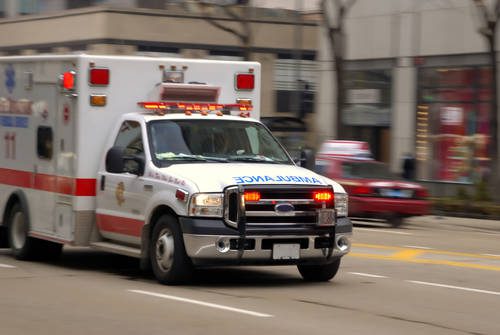
A 15-year-old Georgia girl, Amanda Sylvester, tragically passed away from cardiac arrest after collapsing during a volleyball practice. Sylvester, a member of the Dream Chasers volleyball club, was participating in a warm-up session at the Tracey Wyatt Recreation Complex in College Park, a suburb of Atlanta, when the incident occurred.
Emergency Medical Technicians (EMTs) arrived on the scene within minutes of Sylvester’s collapse. According to Bill Crane, a spokesperson for Fulton County, the EMTs evaluated Sylvester, who was conscious and appeared to be in normal health. However, an ambulance that was summoned to the scene never arrived.
After waiting for the ambulance for 40 minutes, Sylvester’s mother decided to drive her daughter to Hughes Spalding Children’s Hospital. Unfortunately, Sylvester went into cardiac failure at the hospital and, despite being revived once, she later died.
Catherine Murray, the coach of the Dream Chasers Volleyball Club, expressed her outrage at the situation, criticizing Grady Memorial Hospital for the ambulance’s failure to arrive. She emphasized the responsibility they hold for the lives in their care and called for a better system to protect children.
City officials have pledged to investigate why the ambulance did not arrive to provide additional trauma care and transport. Dr. Emmanuel Adediran, the city manager of College Park, expressed his devastation over the tragic loss of life at such a young age. He assured that all protocols related to injury or health care distress were followed by the Recreation and Cultural Affairs Department staff, College Park Fire Rescue, and the volleyball club coaches, parents, and staff.
Grady EMS defended its response, stating that the initial call was categorized as low severity. They explained that a College Park Fire unit, equipped to provide medical care and transport if necessary, responded to the scene. However, when the patient’s condition was updated, the call was reclassified, and a Grady EMS unit was dispatched. As the unit was en route, it was determined that additional EMS support was no longer needed as the patient was being transported to the hospital via a personal vehicle.
An investigation by Atlanta News First revealed that in 2022, the average response time from Grady for critical calls was between 22 and 29 minutes. The average response time for less urgent calls was between 46 and 89 minutes. City officials are continuing to investigate the incident.